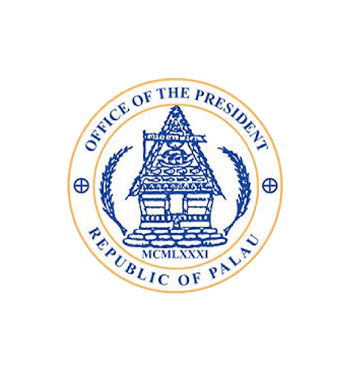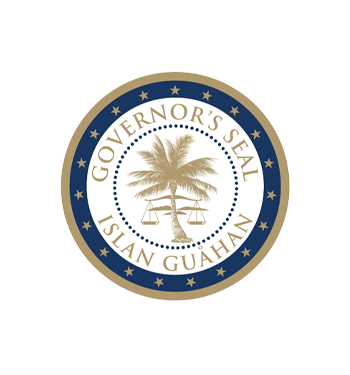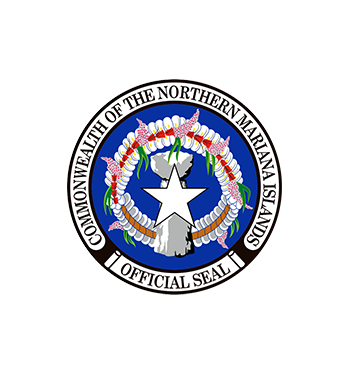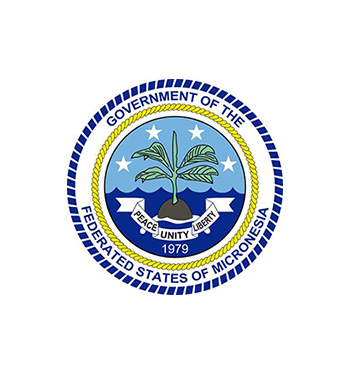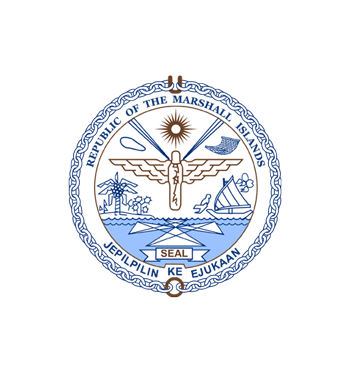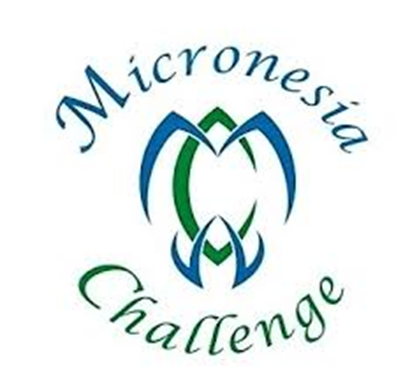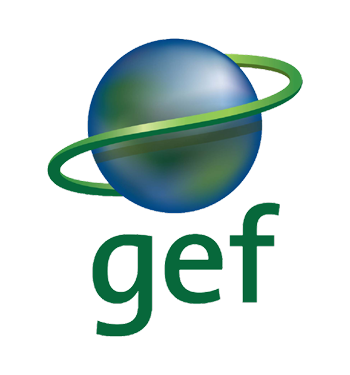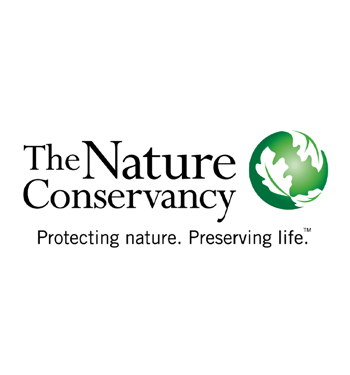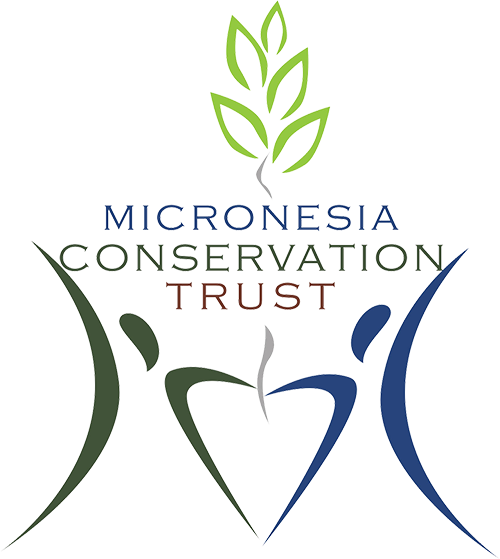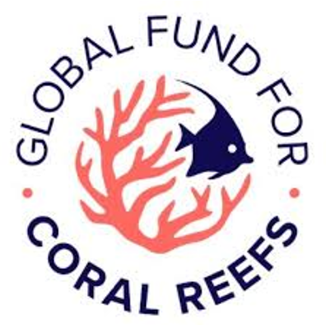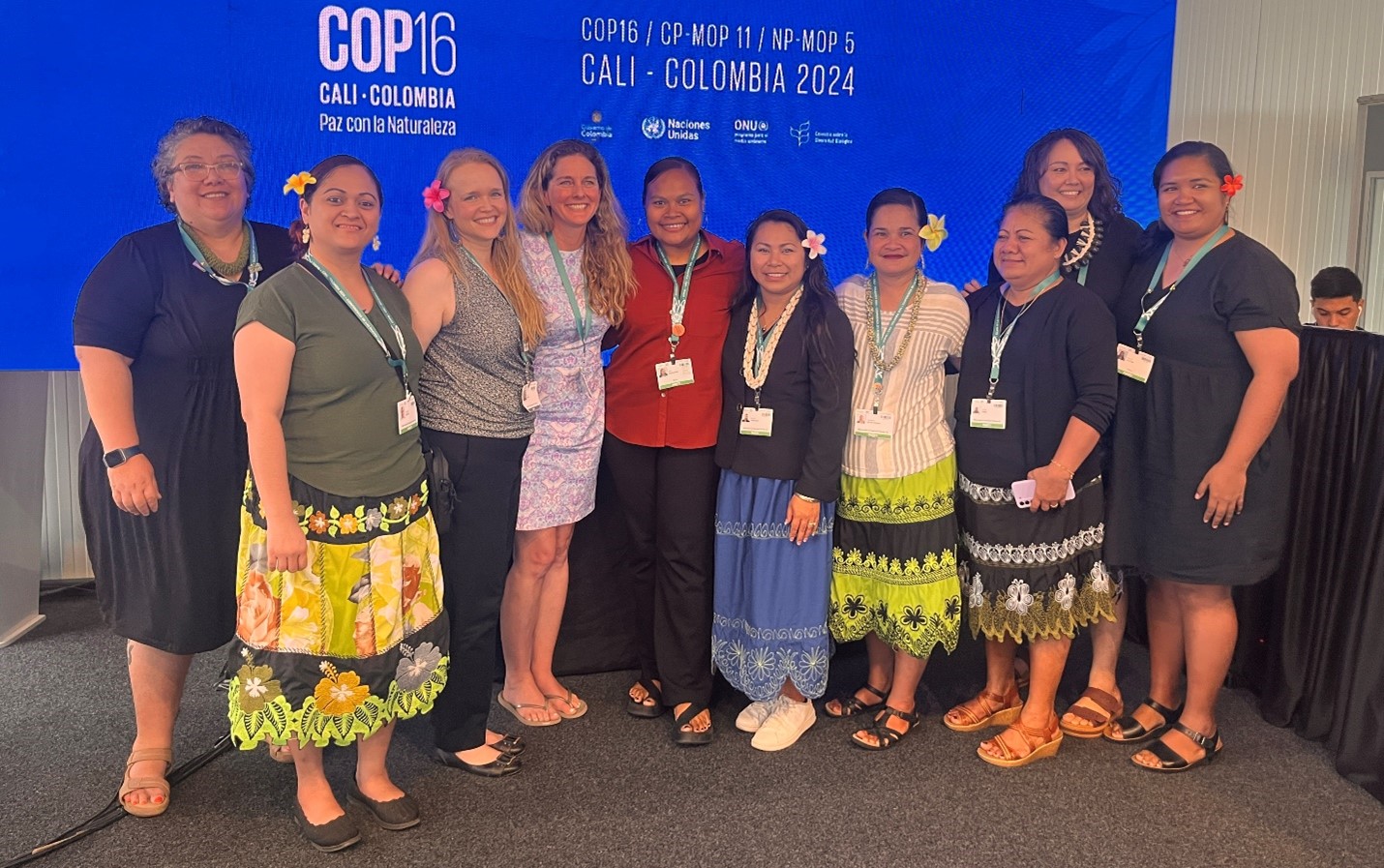
Members of the MC2030 team along with some of the other event speakers
At COP16 in Colombia, GLISPA has been at the forefront of highlighting island issues, hosting impactful sessions and building connections with partners, members and stakeholders:
KEYNOTE EVENT
“Micronesia has much to offer the world — solutions, leadership, and resilience. It’s a testament to how progress can continue despite political transitions, changing partnerships and priorities. At COP16 the foremost priority is the implementation of the Global Biodiversity Framework. I ask you with all humility, - What better example is there than this one?”
These remarks from FSM Deputy Permanent Representative, Mrs. Universe Y. Lawrence captivated an audience ready to hear about implementation in an island context.
Launched in 2006 at CBD COP 8 in Curitiba, Brazil, alongside the Global Island Partnership (GLISPA), the Micronesia Challenge was a groundbreaking initiative led by political leaders determined to link biodiversity conservation with island livelihoods. It set an ambitious target: conserving 30% of near-shore marine resources and 20% of terrestrial resources across five jurisdictions — Palau, the Federated States of Micronesia, the Marshall Islands, Guam, and the Northern Mariana Islands — by 2020. This effort inspired similar initiatives worldwide, including the Caribbean Challenge, Coral Triangle Initiative, Aloha+ Challenge, BEST Challenge in Europe and many other efforts. In 2019, upon review of progress made toward the 2020 targets set in the Micronesia Challenge, leaders expanded the goals under the Micronesia Challenge2030, committing to manage at least 50% of marine resources and 30% of terrestrial resources by 2030. The updated goals intentionally place people at its center, committing to increasing community livelihoods from sustainable practices, reduce climate risks and impacts, confront more directly the threat of invasives, and restore habitats. Tracking progress toward conservation commitments has always been a challenge globally, but the Micronesia Challenge led the world in developing regional measures and monitoring the progress of their 2020 goals.
At this event, Ms Ilima Kloulchad, Director, Bureau of Environment, Ministry of Agriculture, Fisheries and Environment, Republic of Palau, Mr Karl Fellenius, Coastal Biodiversity Advisor, RMI Environmental Protection Authority, Republic of the Marshall Islands and NGO representative Ms Mae Bruton-Adams from the Micronesia Conservation Trust shared bright spots and examples of implementation in the context of the implementation of the Global Biodiversity Framework. They highlighted the importance of local engagement, local solutions and regional collaboration.

Members of the MC2030 team along with some of the other event speakers
Some reflections during the event on the Micronesia Challenge and New Micronesia Challenge 2030:
Lizzie McLeod, Global Oceans Director, The Nature Conservancy
"As we work here to achieve the Global Biodiversity Framework, we are proud to again recognise the bold and inspirational leadership of Micronesia in expanding their commitment. There are two things about Micronesia that really stand out for me - one is the tremendous biodiversity of this place which is unmatched, its absolutely incredibly exquisite and incredibly important and we all need to be leaning in and making sure that this biodiversity is sustained to support the communities that depend on it and secondly that I have witnessed firsthand the power of a small incredible group of people who through their bold vision challenged the world, set a high bar for what we all need to be achieving.”
Joe Appiott, Coordinator for Marine, Coastal and Island Biodiversity, Convention on Biodiversity Secretariat
"This is such an important initiative as it has set a model for what can and should be followed elsewhere - we know that global commitments and these big proclamations at the global level mean nothing if they're not translated into action. That’s why it’s really especially inspiring and encouraging to see the Micronesia Challenge actually go way beyond the ambition at the time. It’s rare to see initiatives last this long and go through administration changes. It’s incredible. From the global perspective this is a very unique, inspiring and incredible model that has inspired others elsewhere. It’s still around because it’s still relevant, it’s still ahead of its time, it’s still more ambitious than what a lot of other countries are doing and it still has important buy-in and things to do.”
Sarah Wyatt, GEF Secretariat
"The countries of Micronesia have made a tremendous commitment to conservation in the face of climate change and international fishing pressures. The GEF supported the creation of MCT and other trust funds because their grants can be responsive to national needs as well as those of communities.”
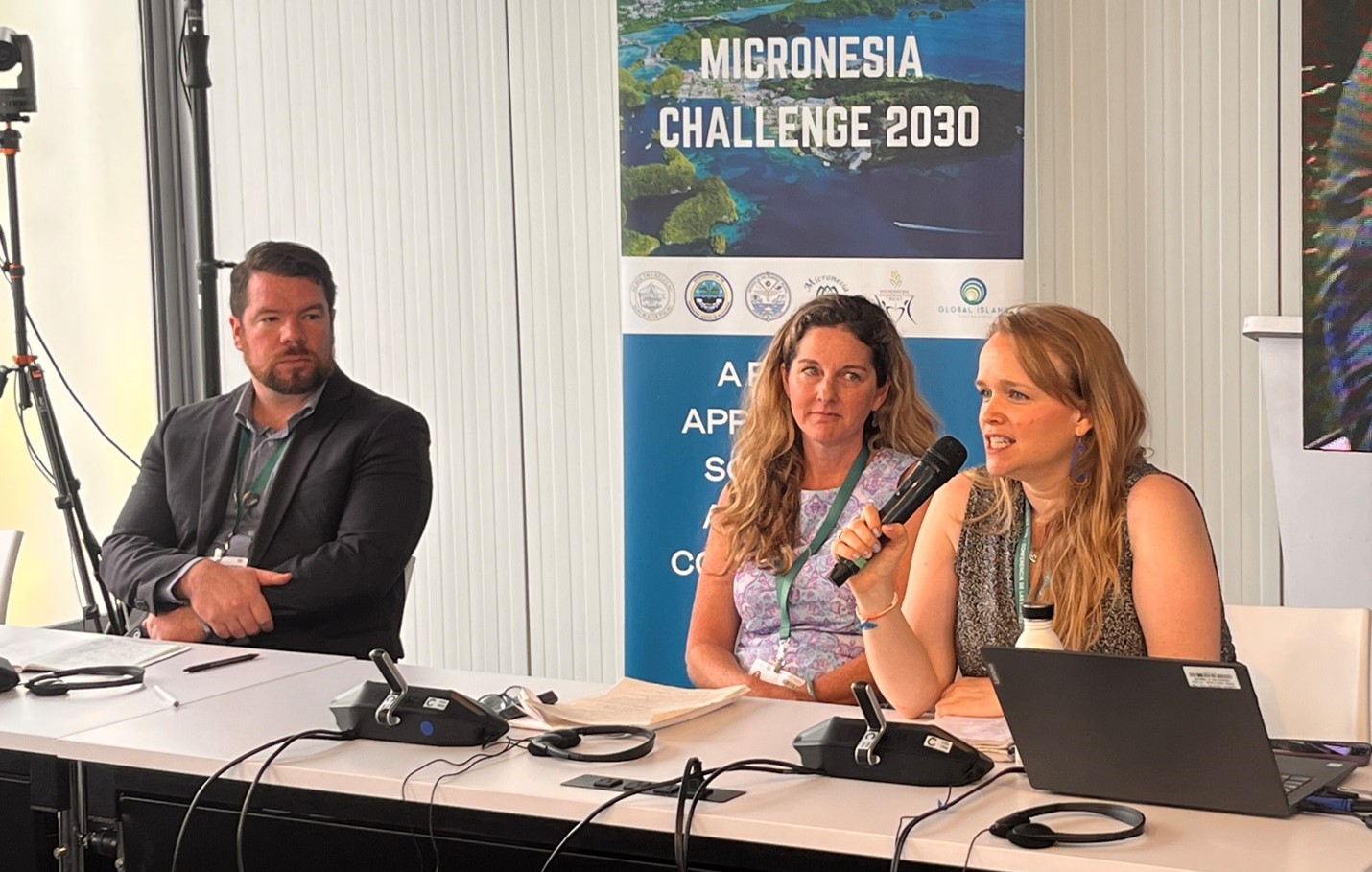
From left to right: Joe Appiott, Lizzie McCleod and Sarah Wyatt
ACHIEVEMENTS OF THE MICRONESIA CHALLENGE
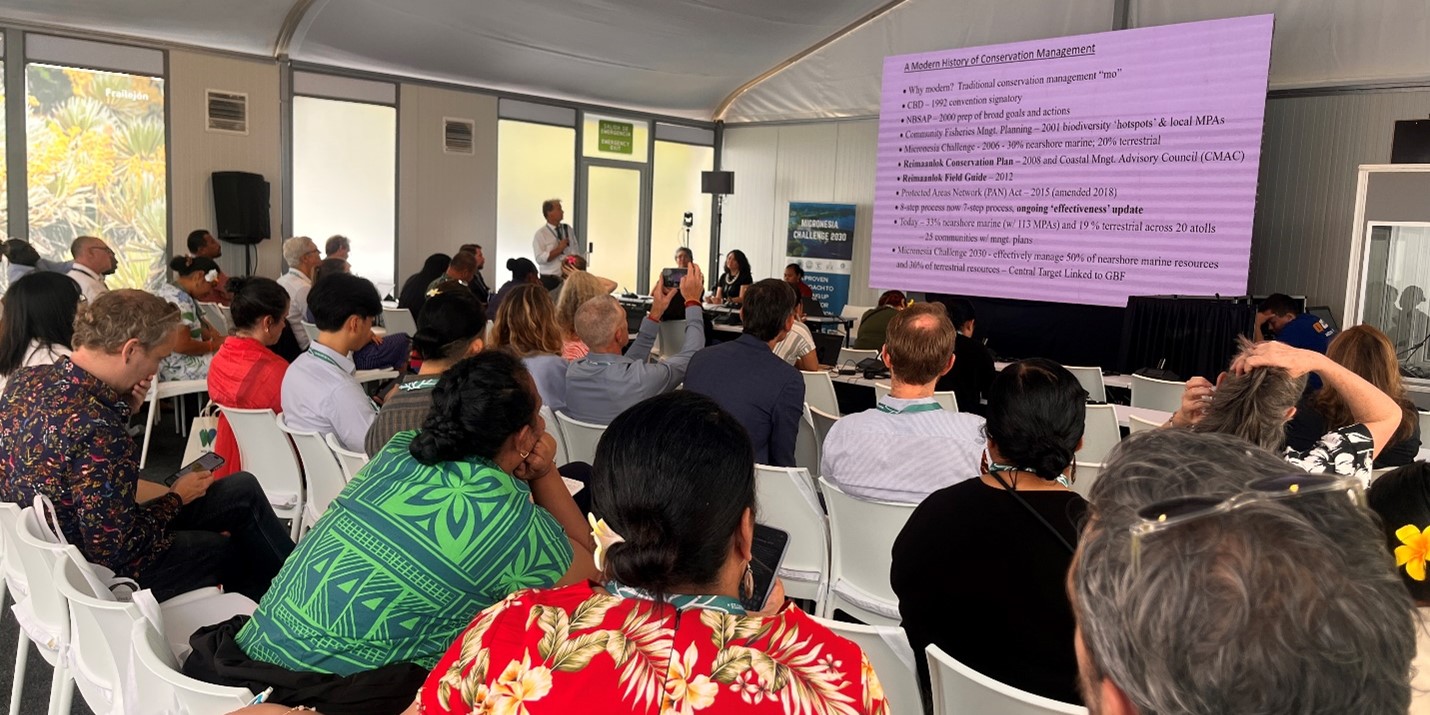
Karl Fellenius of RMI EPA presenting to the audience
For more information please see:
SIDE EVENT SPOTLIGHT
A major focus at COP16 has been the launch of our Conservation Trust Fund Community of Practice for Small Island Developing States (SIDS-CTF CoP) – a dedicated platform for sustainable funding, knowledge sharing, and collaboration. The following is a snapshot of the side events on the ground in Cali the GLISPA team had the privilege to be a part of, where we used to opportunity to promote the work of SIDS-CTFs. Together we are ensuring the resilience of island ecosystems for generations to come!
The importance of Conservation Trust Funds as changemakers for SIDS were highlighted at this event bringing together three powerhouse women at the vanguard of their respective CTFs, operating in each of the SIDS regions:
The event also saw the soft launch of the SIDS Conservation Trust Fund Community of practice. Kate Brown - Executive Director, Global Island Partnership (GLISPA) noted that the CoP is specifically for Trust Funds in SIDS given their special circumstances in conserving their natural resources and adapting to climate change amid a specific set of challenges.
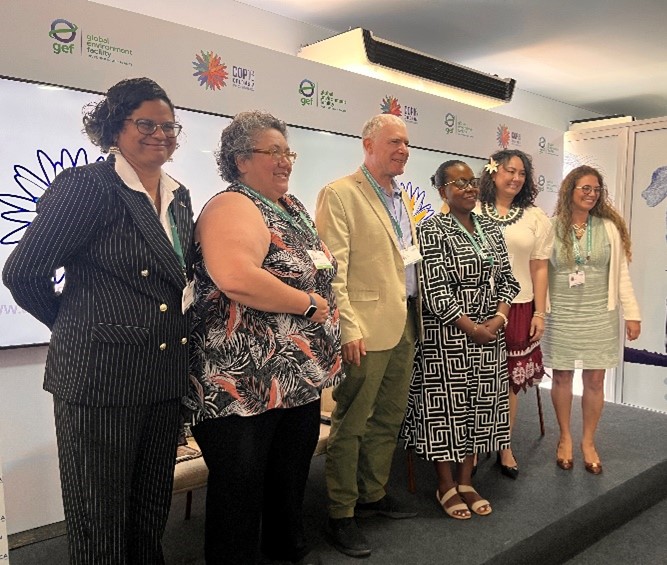
Speaker panel at the event
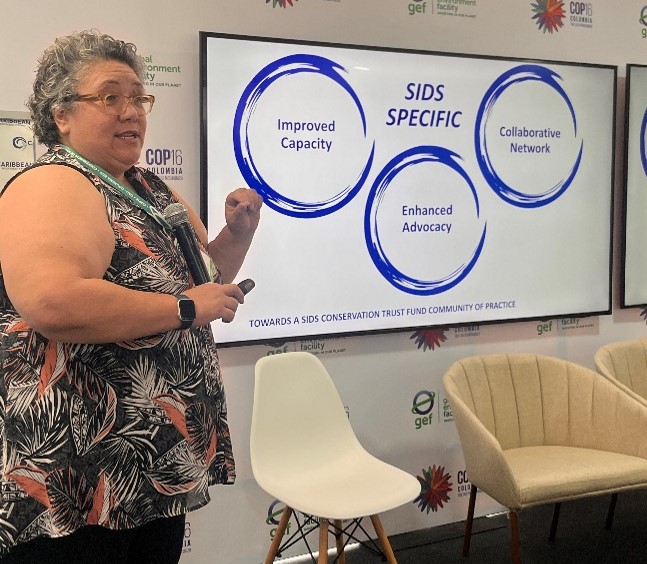
Kate explaining the objectives of the SIDS-CTF CoP
For more information please see:
This event sought to illustrate how CTFs strengthen local capacity and create lasting impact. Some of the issues touched on in this riveting discussion included:
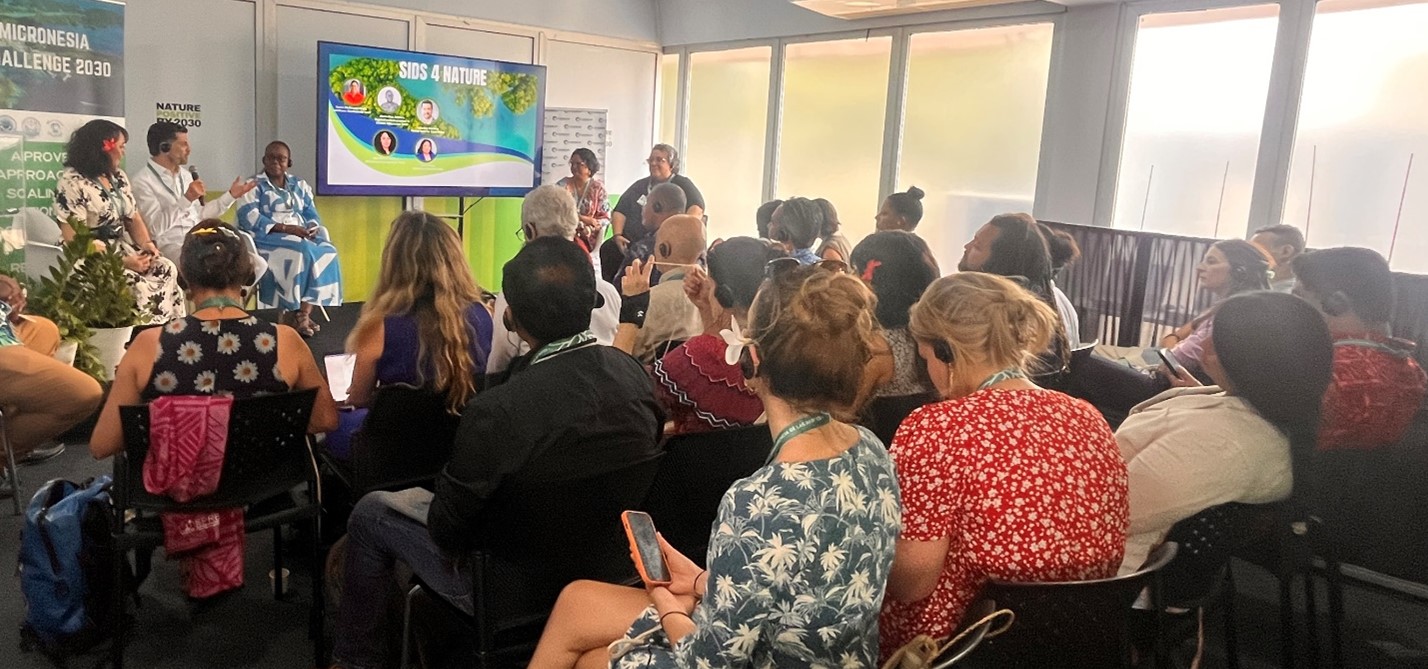
Cross section of the attendees
For more information please see:
During COP16 Ocean Day, GLISPA was part of a cohort of like-minded NGOs that came together to highlight the deep interconnections between people, cultures, economies, and ecosystems, bringing together individuals dedicated to advancing ocean conservation, research, and sustainable use. The Connected Ocean session embraced the concept of the ocean as a shared home. GLISPA’s ‘room’ in this home was the ‘Conservatory’, which we represented as a vibrant sanctuary built on partnerships, trust funds, and strong island voices. This message was conveyed through a poetic performance, calling for strengthened alliances to safeguard and nurture the legacy of our oceans. “Team GLISPA” included:
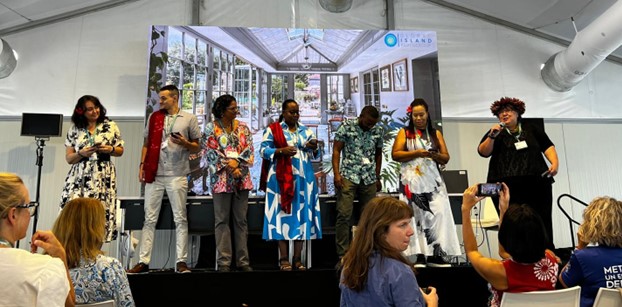
“Team GLISPA” performing their poem
For more information please see:

GLISPA wishes to sincerely thank the following Members and Supporters for their dedication to working together to build island resilience at COP16 and beyond:
